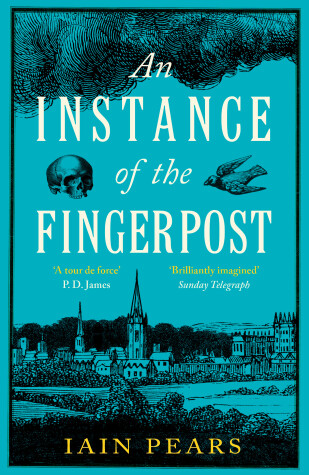
empressbrooke
I was worried that this was going to be yet another one of those "It's up to you to decide what the truth is" deals (see: Sarah Dunant's Mapping the Edge), but the fourth narrator gives a sense of finality to the entire book. It's also possible to suss out some of what is and isn't true when considering A) inconsistencies in the four stories, B) information that one narrator has that the others don't, and C) the biases and personality of each narrator. One narrator has the tendency to react rashly and foolishly; another is prone to obsession. Most often, books are written so that the narrator's prose is meant to be taken as a reliable truth; this is definitely not the case here.
I read Fingerpost in two sittings, with about a month passing between. If I had to do it all over, I wouldn't let that large amount of time go by before finishing it; the book is far more interesting when all the details are fresh in your mind and you can make the tiny connections between each narrator's story. I also think the book is more rewarding upon finishing it and reflecting on it as a whole; I felt only moderately warm about it until I reached the end of the final narration, at which point I felt considerably awestruck (Sarah Waters' Affinity had the same effect, although I felt only less-than-lukewarm about the novel up until the end). One of the bigger surprises for me would probably not surprise a history buff very much, but it's still presented in a neat way that should interest someone who saw it coming.
I enjoyed Fingerpost far more than my first Iain Pears novel, A Dream of Scipio (which also bills itself as a murder mystery on its back cover, but is most definitely not). It's given me enough faith in him to check out his others books, which are in a series of "art history mysteries." Pears is an art historian himself, and I'm looking forward to reading something he has considerable knowledge about.
